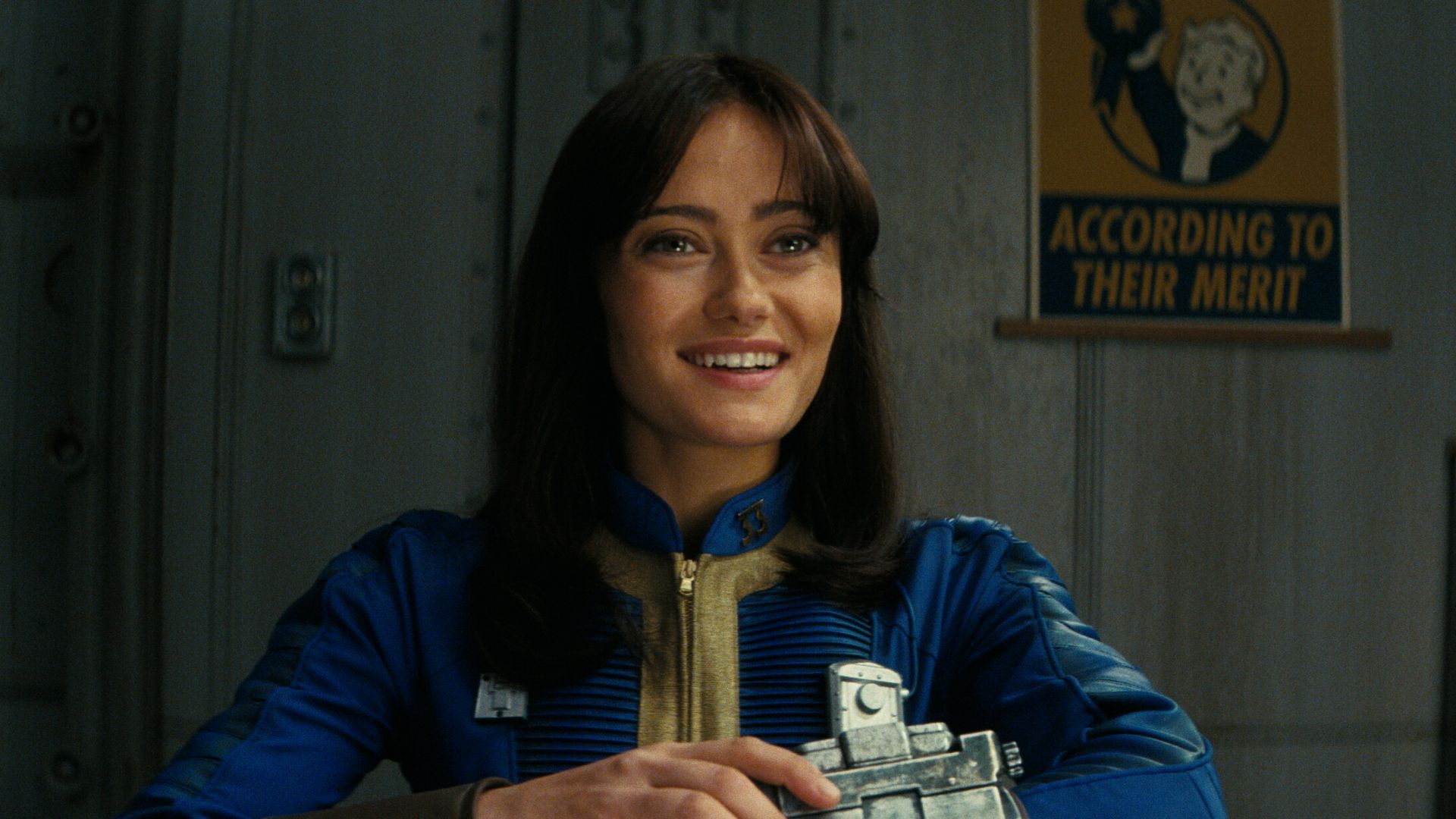
Tim Cain, who led the creation of the original Fallout game, has given a quick review of the Fallout TV show. In short, Cain says "I like this show. I like it a lot." And he's not particularly bothered by the lore controversies, either. Be warned, of course, that some major spoilers are set to follow.
"The reason I like it so much is everything feels like Fallout," Cain says in a YouTube video. "It feels like Fallout. That is hard to do - trust me, I know how hard that is to do. It's easy to write post-apocalyptic stuff that doesn't fit in the Fallout mold, and it would've been very easy for them to accidentally go off, to be too silly, to have things that are like 'that's not part of Fallout.' But they didn't."
We've written about how the Fallout show feels like an adaptation of a game that doesn't exist, and Cain is similarly impressed with how much the series feels like the games. "The time where Lucy stopped to ask for directions from the guy working on the sand filter, and he drank all of her water. That guy looked straight out of Fallout, as one of our village characters, and that's what I'm talking about with the feel. That's what gets me in the feels." He suggests that this kind of thing might've flown over the heads of most fans, "But that gets me. That made me go 'ooh that's so Fallout-y!'"
Cain is also enthusiastic about the way the three central characters of the show can represent three different ways of playing the game, with Lucy as the nice person who wants to help everyone, Maximus as the driven character who has a particular goal he wants to achieve no matter what, and the Ghoul as as the "murderhobo - which many of you play the game that way. So do I."
To Cain, Lucy's journey also represents the way you might focus on the main quest and then quickly get very distracted. "It feels like she started off in the first episode or two and was all about the main quest. Then all these sidequests open up, and it went in all different directions, it went in places you didn't expect. And then the main quest completes at the end, but in a way that makes you go 'I have more questions. I would like to play the sequel now. I want to know what's going to happen here.' I love that. That's a good way for a game, or a TV show, or a movie to end."
Some Fallout fans have taken issue with certain revelations the show makes regarding the series' lore, including who dropped the first nuke in the war that ultimately destroyed the world. Cain asserted in an interview last year that it was, in fact, China that started the war. But in flashback sequences, the show depicts Vault-Tec executives making plans to drop the first bomb.
"Yes, Vault-Tec did talk about nuking first," Cain acknowledges. "If you've ever been in a company, they will have business plans that try to handle different contingencies. But I don't think they nuked first. I really don't think they did, because Barbara didn't strike me as a stupid woman. Would she have sent her daughter to a birthday party on the day Vault-Tec was gonna nuke? I think they were planning on nuking. It was one of the strategies that they were thinking about, which is enough to go 'wow, Vault-Tec is evil.' But I don't think they nuked. I think they were a bit caught off-guard too when nukes came in."
The other big lore controversy is over how the timeline deals with events established in Fallout: New Vegas. "I know people were complaining about the dates being off," Cain acknowledges. "Well, you're right. Maybe they are off? Maybe what was taught to the kids was wrong. Maybe it was deliberately wrong, maybe they were lying to the kids. They lied to the kids in Vault 33 about other things, why not lie about that? Or maybe they're off but they don't know they're off - maybe just a few years either way."
Cain also posits an even more interesting theory: "Or maybe the dates in the games are off? Maybe Fallout: New Vegas, some of the characters in that game got the dates wrong? There's no master calendar you can refer to. Maybe people got off. Maybe people had the years wrong. Or maybe they're just unreliable narrators. Fallout has a history in a lot of the games of having people tell you something that isn't true."
If the answer does end being that some date record or another was simply wrong, that might come off as a disappointing retcon, but Cain notes that "lore drift" is inevitable in a franchise that's become as big as Fallout. "Every single Fallout game changed a little in the games that came before," Cain says. "It's always happened. The lore's always drifted a little. Fallout 2 changed some things in 1. Fallout 3 changed some things in 1 and 2. Fallout 4 changed some things in 1, 2, and 3. It happens."
These days, the ultimate arbiter of Fallout canon is Bethesda boss Todd Howard, who has certainly signed off on the show. Cain readily acknowledges that "I'm not in charge of this anymore. Neither are you. Basically, anything Bethesda does from now on, that's canon. I think it's fun to talk about this, though. I don't think it's fun when people make personal attacks about it, so cut that out. Please."
Fallout season 2 has been confirmed, and a Brotherhood of Steel theory suggests a major season 2 spoiler could be hiding in plain sight.







